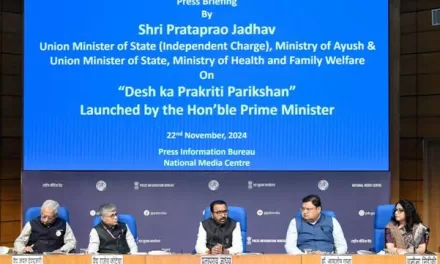Cultivating gratitude within family dynamics goes beyond boosting individual happiness; it plays a crucial role in strengthening relationships and improving mental health, according to recent research from the University of Illinois Urbana-Champaign.
In a groundbreaking study led by Allen Barton, an Illinois Extension specialist and assistant professor in the Department of Human Development and Family Studies, the impact of perceived gratitude was explored across different family relationships. Barton, known for his previous research on gratitude within romantic partnerships, extended his investigation to include parent-child interactions.
The study involved a nationwide sample of 593 parents who were either married or in a romantic relationship and had children aged 4 to 17. Participants provided insights into their experiences of gratitude from their spouses and children, alongside assessments of psychological distress, parenting stress, and relationship satisfaction.
Dividing the children into two age groups—4 to 12 and 13 to 18—the researchers aimed to capture developmental variations in the expression and impact of gratitude. While teenagers, with a more nuanced understanding of family dynamics, might show greater awareness of parental contributions, younger children also demonstrated gratitude albeit in simpler ways.
Key findings reveal that perceived gratitude from romantic partners significantly enhances couple outcomes, leading to increased confidence, satisfaction, and commitment. However, it did not affect parenting stress levels. On the other hand, gratitude from children—regardless of age—was linked to reduced parenting stress, though it did not influence couple relationship satisfaction. Furthermore, perceived gratitude from both romantic partners and older children was positively correlated with improved psychological well-being.
A notable gender disparity emerged from the study: women reported lower levels of perceived gratitude from both romantic partners and older children compared to men. Interestingly, higher levels of gratitude from children had beneficial effects predominantly for women, aligning with previous findings that suggest women’s contributions are often less acknowledged.
Barton emphasized the importance of cultivating a family environment where efforts are recognized and appreciated. He advocates for spouses and partners to express gratitude regularly and for parents to teach children to show appreciation in ways suited to their developmental stages. Simple acts like prompting children to thank a parent for their help can nurture a culture of gratitude within the household.
Despite the lack of socio-demographic factors influencing perceived gratitude, Barton believes that fostering appreciation is a universal practice beneficial for all family types.
“Building strong families requires recognizing the hard work that goes into parenting and maintaining relationships,” Barton stated. “When family efforts are underappreciated, it takes a toll on both individuals and the family as a whole. Our research underscores the power of saying ‘thank you’ and its positive impact on family well-being.”
This study reinforces that gratitude is not only a personal virtue but a crucial element in family dynamics, offering a path to stronger, more supportive relationships and enhanced overall mental health.











